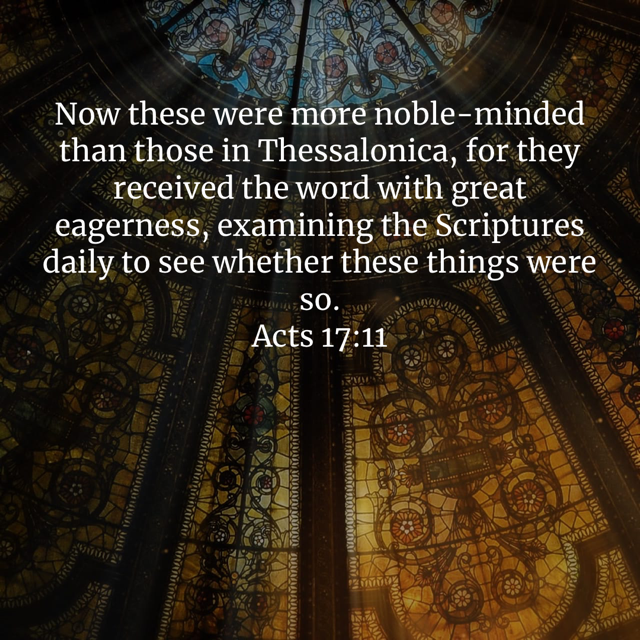I’ve been asked a few times how I come up with my Bible studies and where should someone start if they wanted to do studies on their own, so I’ve decided to share the steps I take when studying my Bible. My methods are nothing new, and maybe you know a few or all of these steps already. Still, if I can help someone feel more confident opening the Word of God and taking a look for themselves I will be immensely happy.
For starters, if I don’t have a question in mind, I’ll use a generic box study guide. What do I mean by this? I’ll look up “Inductive Bible Study” on Amazon and grab one that looks interesting. I love inductive studies because they are much less about personalities and much more focused on the Bible. I hate getting a study only to find that most of it has been taken up with personal anecdotes or worse, personal interpretation of the Word without context and copious amounts of cross references.
“For when one says, “I am of Paul,” and another, “I am of Apollos,” are you not mere men? What then is Apollos? And what is Paul? Servants through whom you believed, even as the Lord gave opportunity to each one. I planted, Apollos watered, but God was causing the growth.” 1 Cor 3:4-6
That’s how I feel about personalities. I don’t want them interrupting my studies and getting in the way of the lesson God has planned for ME that day. Inductive studies, trust me, they are a great start.
After I have what I want to use for my study, I make sure I open all of my daily studies with prayer. I ask for wisdom and an open heart, because sometimes my studies can be VERY pointed at an issue I just don’t want to work on, but God has other plans.
“But if any of you lacks wisdom, let him ask of God, who gives to all generously and without reproach, and it will be given to him.” James 1:5
As I go through my study, if I suddenly have a question, about a verse or a word or why something happened, I pursue it. My study isn’t about finishing a generic study on James, my study is about the lesson God has for me that day. Maybe it’s James chapter one, or maybe it’s chasing down the definition of the word “steadfast” in the Greek and seeing how that word is used elsewhere in the Bible and getting more context for what that word actually means and how I can apply that to my life.
There are some great online concordances, some can be found at Biblehub: https://biblehub.com/strongs.htm
Or Bible Study Tools: https://www.biblestudytools.com/concordances/strongs-exhaustive-concordance/
I personally have the Zodhiates Complete Word Study Old and New Testament. Two books, totally worth the investment, you can find the Strong’s concordance number above every single word in the Bible AND find the correlating definition in the back including Zodhiates own extended translations and all the verses where that word is used. If you REALLY want to dig into God’s Word, these help a lot.
Also, be willing to be wrong.
“We are destroying speculations and every lofty thing raised up against the knowledge of God, and we are taking every thought captive to the obedience of Christ,” 2 Cor 10:5
There is a LOT of speculation out there. There are teachers who write whole study guides based off of one Biblical translation of ONE verse and they just take that single verse and RUN with. Because we are bombarded with speculation, and because we are human, you’d be surprised how much speculation and not solid scripture you may have internalized. When I open my Bible, especially when I’m pursuing a question I have, I try my best to be willing to accept what I find and to let go of false speculations I may have be holding in my mind. The Bible, and the Bible alone, is the authority I trust.
“All Scripture is inspired by God and profitable for teaching, for reproof, for correction, for training in righteousness; so that the man of God may be adequate, equipped for every good work.” 2 Tim 3:16-17
Remember, the Bible interprets itself. Read that verse in context, context is important. Look up verses that speak on the same topic or maybe they even reference that verse, what do those other verses say. Copious amounts of cross referencing. Trust me. Don’t let someone lead you down the path of speculation with a single verse and a catchy idea.
“Your word I have treasured in my heart, That I may not sin against You.” Psalm 119:11
Finally, ask yourself how does this apply to me, to my life. Keep a notebook and write down your thoughts. What do you think this blog is for me? I process what I learn SO much better when I put my fingers to work and write out what I’ve learned. I always sum up with personal application because I’m the one doing the study so I better believe that what I found applies to me. Many times I’ll end in prayer, usually both thankful and contrite, asking for the ability to put what I’ve learned into action.
That’s it! That’s how I study. Anyone can do it, I’m nothing special. Remember:
“As for you, the anointing which you received from Him abides in you, and you have no need for anyone to teach you; but as His anointing teaches you about all things, and is true and is not a lie, and just as it has taught you, you abide in Him.” 1 John 2:27


